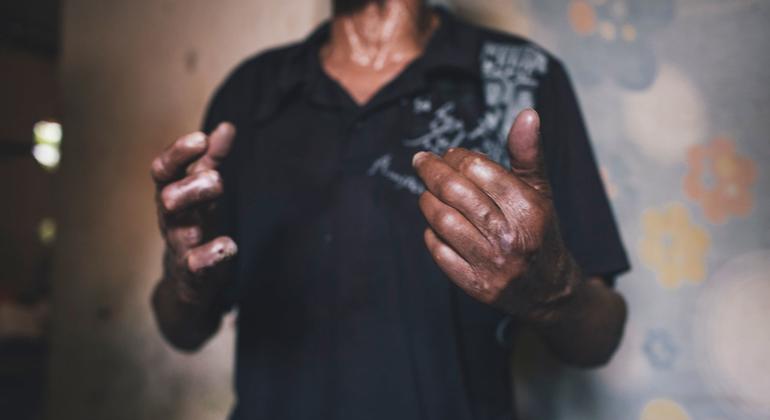UN human rights expert urges Bangladesh to draft anti-discrimination law on leprosy


The United Nations Special Rapporteur on Discrimination against Leprosy said: “Leprosy lies beneath many layers of systematic exclusion, structural discrimination and institutional neglect. Alice Cruzafter an 8 day visit to Bangladesh.
Currently, people from 120 countries affected by leprosyknown as Hansen’s disease, with more than 200,000 new cases are reported worldwide annually.
World Health Organization (WHO) reported that Bangladesh has fifth highest number leprosy cases In the world. Data on Bangladesh shows ongoing transmission, late diagnosis and gaps in the health system.
“The fundamental principles of the right to development, such as equity, self-determination, participation and justice, are not being met,” said the Special Rapporteur.
“Leprosy patients and their families have yet to benefit from economic growthnor do they see discrimination against them appropriately remedied.”
“The situation of people affected by leprosy in Bangladesh shows that the country’s remarkable economic growth is not reaching the entire population,” she said. To solve this problem, Ms urges legislators to introduce draft anti-discrimination law officially recognized leprosy as a prohibited form of discrimination.
‘Hidden cases of leprosy’
She raised deep concerns, following meetings with people affected by leprosy, Government, civil society and health workers along with visits to communities in Nilphamari and Bogura.
Among them, she drew attention to a large number of potentials hidden case. Equally worrisome is Limited access to careand severely delayed diagnoses, and reports of corruption around access to disability-related benefits and other social protection programs.
While noting the Government’s commitment to actively engaging with the international human rights system to protect the rights of those affected by neglected tropical disease, she drew attention to a Serious data vulnerability and the limited understanding of leprosy by the organs involved, its ongoing transmission and disability in children, and Discrimination related to common disease and stigmatization.
Ms. Cruz said: “While I welcome the Prime Minister’s commitment to eliminate leprosy by 2030, I am concerned that the State government is not delivering on this promise. “Allocate the right budget to Clear targets, indicators and standards are needed to turn Government commitments into reality.”
The Special Rapporteur will present his report first Dong Nhan Quyen Association in June.
The special rapporteurs are part of the Council’s special procedures mechanism and are the largest independent body of experts in the United Nations human rights system, tasked with leading monitoring activities. and independent fact-finding around the world.




